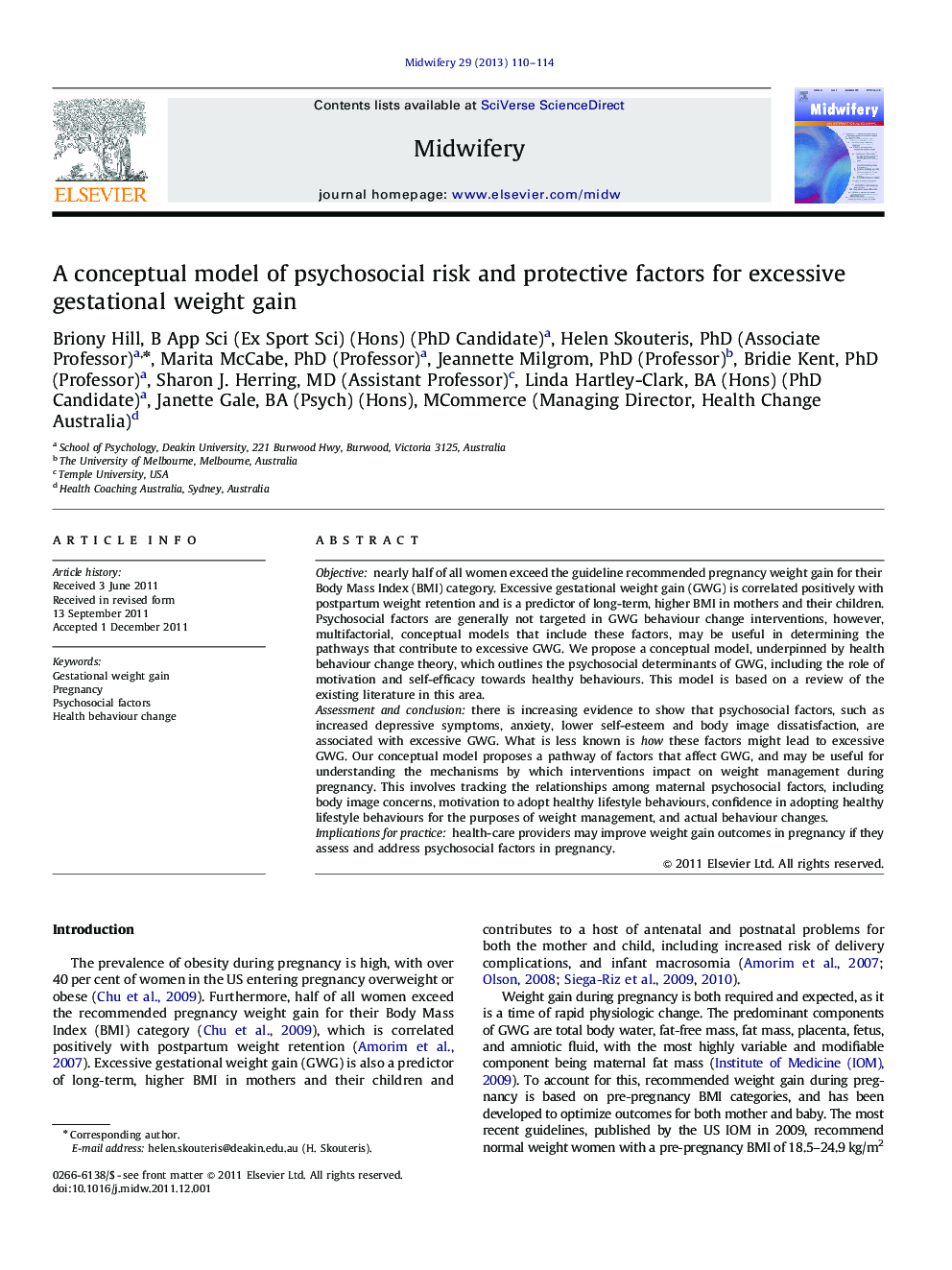| Article ID | Journal | Published Year | Pages | File Type |
|---|---|---|---|---|
| 1084628 | Midwifery | 2013 | 5 Pages |
Objectivenearly half of all women exceed the guideline recommended pregnancy weight gain for their Body Mass Index (BMI) category. Excessive gestational weight gain (GWG) is correlated positively with postpartum weight retention and is a predictor of long-term, higher BMI in mothers and their children. Psychosocial factors are generally not targeted in GWG behaviour change interventions, however, multifactorial, conceptual models that include these factors, may be useful in determining the pathways that contribute to excessive GWG. We propose a conceptual model, underpinned by health behaviour change theory, which outlines the psychosocial determinants of GWG, including the role of motivation and self-efficacy towards healthy behaviours. This model is based on a review of the existing literature in this area.Assessment and conclusionthere is increasing evidence to show that psychosocial factors, such as increased depressive symptoms, anxiety, lower self-esteem and body image dissatisfaction, are associated with excessive GWG. What is less known is how these factors might lead to excessive GWG. Our conceptual model proposes a pathway of factors that affect GWG, and may be useful for understanding the mechanisms by which interventions impact on weight management during pregnancy. This involves tracking the relationships among maternal psychosocial factors, including body image concerns, motivation to adopt healthy lifestyle behaviours, confidence in adopting healthy lifestyle behaviours for the purposes of weight management, and actual behaviour changes.Implications for practicehealth-care providers may improve weight gain outcomes in pregnancy if they assess and address psychosocial factors in pregnancy.
